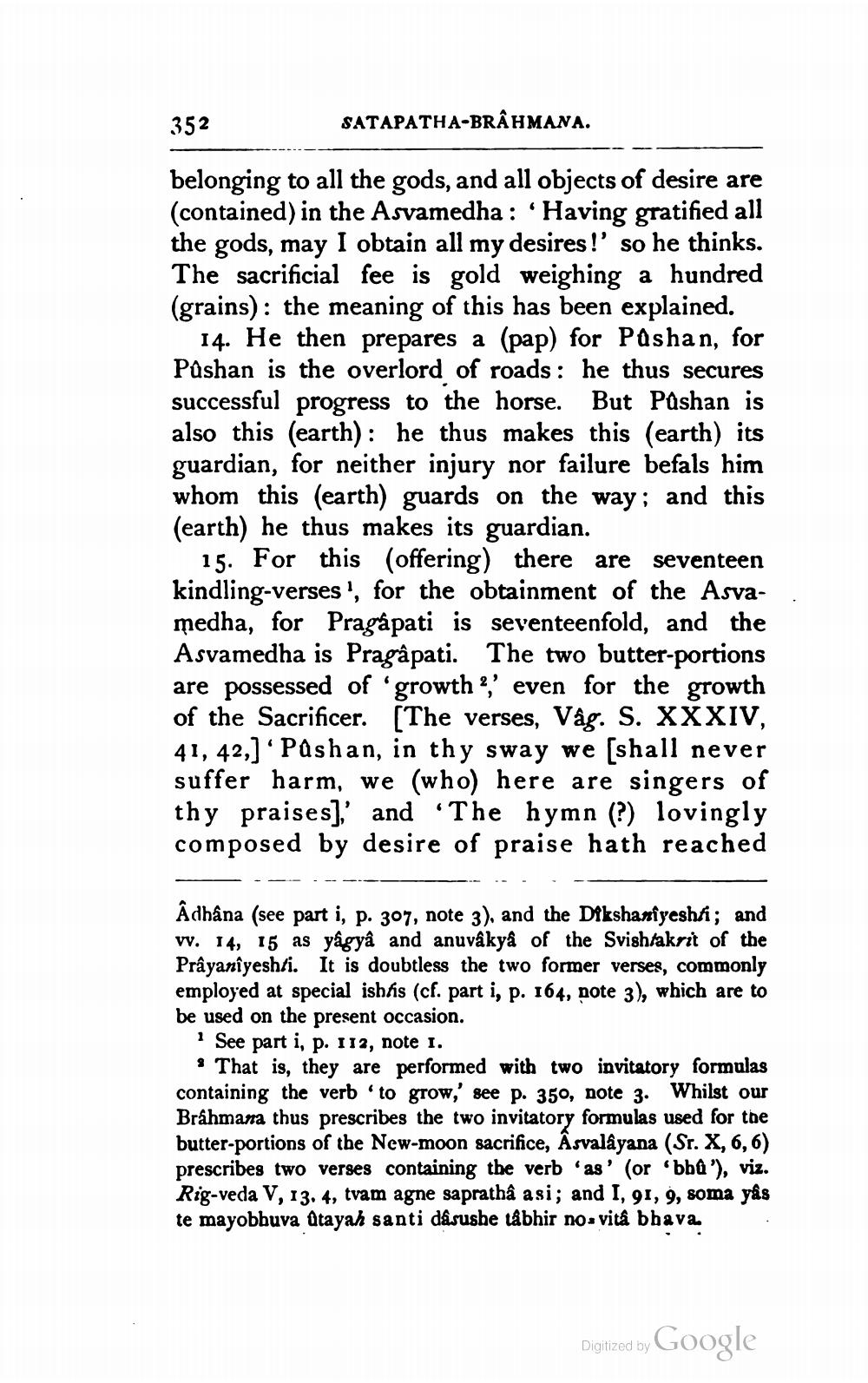________________
352
SATAPATHA-BRAHMANA.
belonging to all the gods, and all objects of desire are (contained) in the Asvamedha : 'Having gratified all the gods, may I obtain all my desires!' so he thinks. The sacrificial fee is gold weighing a hundred (grains): the meaning of this has been explained.
14. He then prepares a (pap) for Pashan, for Pashan is the overlord of roads: he thus secures successful progress to the horse. But Pashan is also this earth): he thus makes this (earth) its guardian, for neither injury nor failure befals him whom this (earth) guards on the way; and this (earth) he thus makes its guardian.
15. For this offering) there are seventeen kindling-verses', for the obtainment of the Asvamedha, for Pragapati is seventeenfold, and the Asvamedha is Pragâpati. The two butter-portions are possessed of 'growth ?,' even for the growth of the Sacrificer. [The verses, Våg. S. XXXIV, 41, 42,] Pashan, in thy sway we [shall never suffer harm, we (who) here are singers of thy praises],' and 'The hymn (?) lovingly composed by desire of praise hath reached - ---------
--- --- --- Âdhâna (see part i, p. 307, note 3), and the Dikshaniyeshdi; and v. 14, 15 as yagya and anuvâkyå of the Svishtakrit of the Prâyanîyeshti. It is doubtless the two former verses, commonly employed at special ishhis (cf. part i, p. 164, note 3), which are to be used on the present occasion.
See part i, p. 112, note 1. 9 That is, they are performed with two invitatory formulas containing the verb 'to grow, see p. 350, note 3. Whilst our Brahmana thus prescribes the two invitatory formulas used for the butter-portions of the New-moon sacrifice, Asvalâyana (Sr. X, 6,6) prescribes two verses containing the verb 'as' (or 'bha'), viz. Rig-veda V, 13, 4, tvam agne sapratha asi; and I, 91, 9, soma yas te mayobbuva atayah santi dâsushe tábhir nosvita bhava
Digitized by Google




